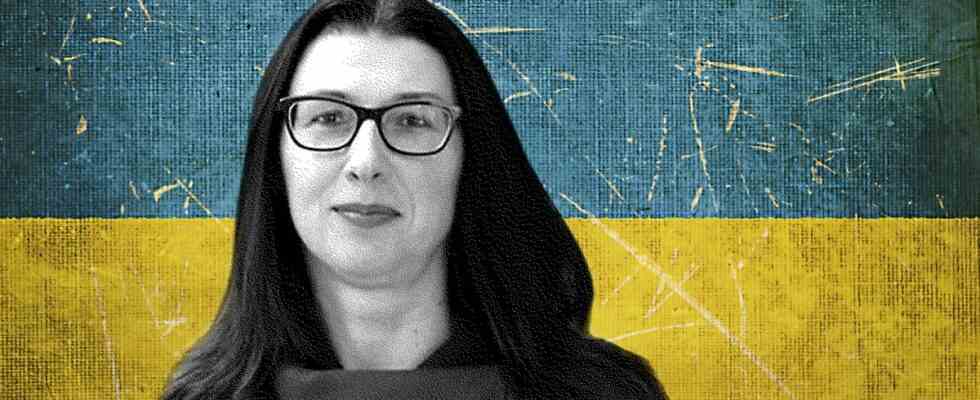For me, Monday morning and the last day of October begin in Darmstadt, after an event in the Vahle studio, the “Czernowitz Literature Day”. It would be so nice if the circumstances were different. I would like to use the time before my departure to the north for work and open my laptop at six o’clock German time. It’s seven at home. I chat with S., the head of the International Office, he came back from the University of Timișoara the night before. He bought some things that our colleagues at the front need. Also shoes in size 45 for a 15 year old boy from Kharkiv who lives with his mother in my younger niece’s apartment. You couldn’t find winter shoes in this size for a long time. Now S. is bringing a pair, hopefully they will fit. There’s an air alert here, he writes at 7:22 a.m. I respond with a sentence that my grandmother from the Galician village would sometimes say when one of her many pets caused major damage. Then I continue to answer my emails that have been backed up.
Shortly thereafter, colleague O. is online, the green dot signals me in the chat. “Woke up to the howling of the air raid alarm,” he writes. “Several impacts already, also in our region.” I switch back to news. The campaign “Create Stone Age conditions for the Ukrainians” is in full swing again: thermal power, hydroelectric power and electricity plants are the targets of the massive shelling. And indeed, the military administration in Czernowitz reports a rocket hit. “An object of critical infrastructure” is the official statement. I immediately think of one of the largest “objects”. My assumption was later confirmed. For the first time a goal has been achieved in our region. Not particularly surprising, it was only a matter of time anyway. And recently Chernivtsi of all places was mentioned in the context of the so-called “dirty bomb”: The Russian “war expert” Alexander Artamonov shared his findings with the public, according to which “the substances for the bomb were first brought to Chernivtsi, by train. There received the first instructions and the first work was done with the material” (to be read, for example, on the Argumenty i Fakty homepage from 23.10.2022).
Who knows how many hours we will have to spend in the sleeping bags?
You could almost be proud of that as a Czernowitzer, you feel valued immediately. The long-running joke in the area that the Russians used pre-1940 printed maps where our region was still marked as Romanian territory, so no missiles were flying towards us, definitely no longer holds true. According to the military administration, the damage is “critical”, but no one was injured. Immediate and even stricter electricity rationing is to be expected. The power went out completely in several cities, including Kyiv and Cherkassy. Even before I ask my friend M. in Tscherkassy, she asks me how we are doing. I write back that I am not on site. And with you? The whole city without electricity and water, she writes. Mobile network does not work, only a weak internet connection, so that one can write. Otherwise everything ok. Hold on, Slava Ukrajini!
In the family chat I bring the suggestion again to buy a power generator. We are in the house, not in a city apartment, it would be perfectly possible to use it. Power generators are already in short supply, the prices for them have risen sharply, but maybe something else can be found. We agree that we will share the costs. A few weeks ago, my brother-in-law considered my worries exaggerated, and my dear closest relatives and neighbors thought it was rather funny that my roommate I. from Mariupol and I filled water bottles and took it to the basement. Now this measure does not seem to have been in vain, who knows how many hours we will have to spend in the candlelight in our sleeping bags in the foreseeable future. It’s good that we have a small stove in the garden and that we spent our childhood in the country, when there were no gas pipes and people used wood and coal for heating. It’s a good thing that in the Galician village you were assigned to all work from an early age and learning by doing was completely natural. In any case, we took a few survival strategies with us from that time. You hardly learn them in an academic career.
Read more episodes of this column here.

